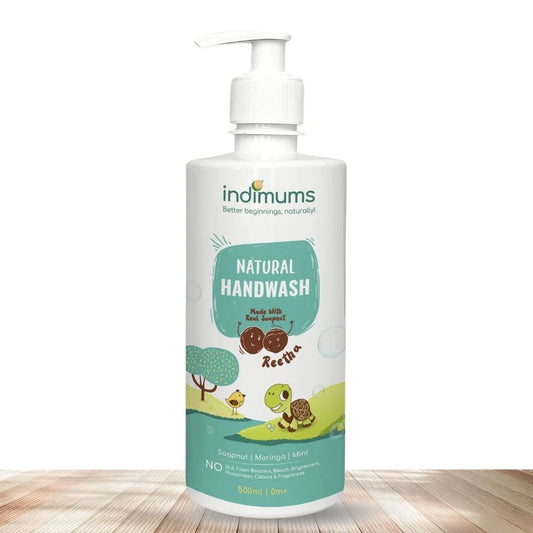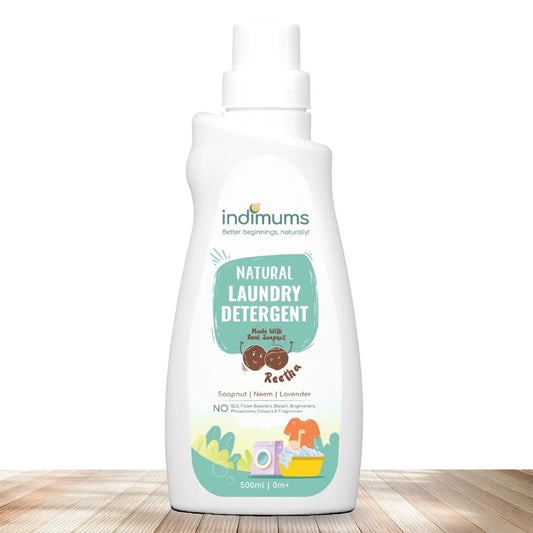Caring for a newborn’s delicate skin often raises many questions. One of the most common: When should I start using a baby body wash? Moreover, if your baby already has dry skin or sensitivity, the choice of cleanser becomes even more critical. In this post, we’ll explore when to begin using baby body wash, what to look for, and how to choose formulas delicate for baby's skin.
When to Start Using Baby Body Wash
In the first days (vernix and sponge baths)
Right after birth, your newborn is often born with a vernix caseosa layer — a natural, protective white coating on their skin. Many hospitals delay the first full bath to preserve this layer for a while. During this initial period, most pediatricians recommend giving sponge baths with plain warm water and a soft cloth, rather than using any cleanser.
Only once the vernix layer has naturally diminished (usually within a few days), you may introduce a mild cleanser. This is often the time when some parents begin using a gentle baby body wash safe for newborns or a natural tear-free baby body wash.
After the umbilical cord stump falls off
Many pediatricians suggest waiting until the baby’s umbilical cord stump falls off before having full baths with cleansers. This typically occurs within 1 to 3 weeks. Once that happens, it’s safer to introduce a pediatrician recommended baby body wash, provided it is extremely gentle.
For babies with dry or eczema-prone skin
If your baby has dry patches or is prone to eczema, you might begin a very mild baby body wash earlier—provided it’s a formula that is moisturizing baby body wash for dry skin or baby body wash for eczema-prone skin. However, consult your pediatrician or dermatologist first.
What Makes a Baby Body Wash Safe & Gentle?
When selecting a baby body wash, especially for newborns or babies with conditions like eczema or dry skin, you should prioritize certain features. Below are key attributes:
1. Free from harsh chemicals
Look for a baby body wash without harsh chemicals. Avoid sulfates (e.g., sodium lauryl sulfate), parabens, phthalates, dyes, and strong preservatives whenever possible. A sulfate and paraben-free baby body wash is gentler on delicate skin.
2. Plant‑based and natural ingredients
Formulas labeled baby body wash with plant-based ingredients can offer a safer alternative, as long as you check for irritation potential. Ingredients such as Reetha, Shikakai, aloe vera, neem and calendula often appear in gentle washes.
3. Fragrance‑free or low fragrance
To reduce the risk of irritation, opt for fragrance-free body wash for newborns, or extremely mild fragrance. Some babies may be sensitive, and eliminating fragrance reduces risk.
Here know why less fragrance is better for baby.
4. Tear‑free and pH balanced
A natural tear-free baby body wash ensures your baby’s eyes won’t sting during bath time. Also ensure the product is pH balanced to support the skin barrier.
5. Support for scalp and rash issues
If your baby has cradle cap or diaper rash issues, look for a baby body wash safe for sensitive scalp and skin or one that claims to help with diaper rash. But these treatments should never replace medical advice.
6. Recommended by professionals
The phrase pediatrician recommended baby body wash offers extra trust. While not a guarantee, it often reflects that the product has undergone rigorous safety evaluation.
7. Creates Less Lather
Heavy lather doesn’t mean better cleaning. In fact, it often means more chemical additives, which can be harsh on your baby’s delicate skin and scalp. Here's a detailed information.
Indimums Baby Body Wash - Made Using Authentic Herbs, Promotes Natural Skin Health
- India's first tear-free, soap-free Reetha-based baby body wash
- No post-bath dryness- gentle, hydrating, moisturizing and nourishing
- Anti-bacterial powers of neem provide a germ-free skin environment
- pH Balanced and Hypoallergenic, reduces risk of rashes
- Suitable for all skin and all ages- newborns, toddlers and tweens
Summary
Deciding when to start using a baby body wash depends on factors like the velvet‑like vernix coating, umbilical cord healing, and your baby’s skin condition. For newborns especially, sponge baths with plain water may suffice initially. As soon as you introduce a cleanser, choose only the gentlest body wash for your baby's skin.






